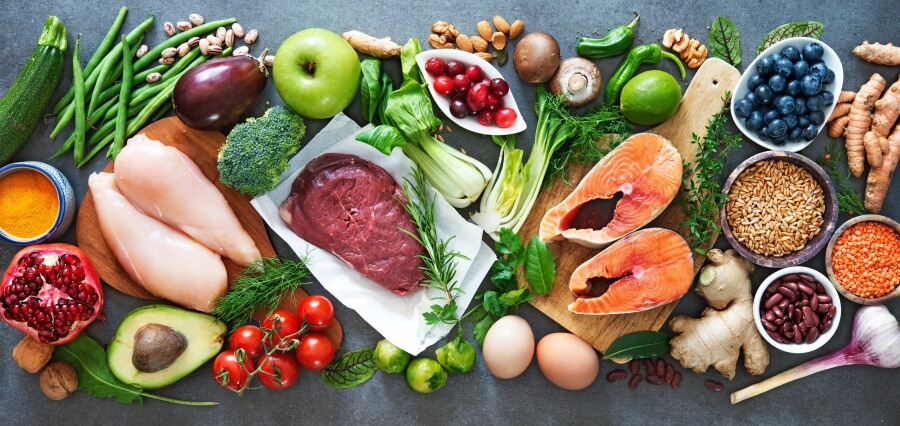Emerging Nutrition Trends
Health and wellness trends are changing the consumer point of view towards the nutrition products. They demand the adequate informed choices of products to be made available in the market so that they need not confront situations like malnutrition or obesity.
Nutrition thus remains a major concern for public healthcare agencies around the world. On one side the problem of hunger and malnutrition is increasing in certain parts of the world like Africa and Asia while there are regions struggling with obesity in the North American continent. There is a need for implementing and scaling up changes aimed at assuring the access to nutritious foods and breaking the vicious cycle of malnutrition and ill-health. Some of the recent developments in the field of nutrition are narrated here.
Global Paradox of Two Extremes – Malnutrition and Obesity
It is a global dilemma that under-nutrition and obesity are found to exist simultaneously in many countries. Families with experience of food insecurity may have a higher risk of overweight and obesity. Poor access to food, high cost of nutritious food, the stress of living are common reasons in many regions while physiological variations developed as a result of chronic food deprivation are individual causes illnesses related to malnutrition and obesity.
According to UN reports a number of people suffering from hunger in the world in 2017 were around 821 million or one in nine adults while obese adults are 672 million or one in eight adults. There are 150.8 million (22.2%) children under the age of five affected by low height-for-age ratio while 38.3 million (5.6%) are children under the age of five who are having high weight-for-height. Moreover, it is also reported that 32.8% of women of reproductive age are affected by anemia.
Adult obesity is worsening as cases of overweight individuals are rising significantly in North America but Africa and Asia are also experiencing an upward trend. Indian situation in nutritional sufficiency can be judged from the fact that it was ranked 100th out of 118 countries. New evidence continues to signal that the number of people deprived of necessary nutrition in the world is growing and there was a slow progress on ending all forms of malnutrition.
Digestive Wellness
Most healthcare professionals believe that the general wellness of a person depends on the health of his digestive system and hence digestive wellness takes the center stage of their efforts. Consumers are now aware and want to experience the maximum benefits from the food they eat and thus create a strong demand for food products that claim to provide digestive wellness.
It is propelled by addition of new ingredients and emerging science of preparing the food products. The general trend of ‘free-from’ foods such as sugar-free, free from dairy, free from gluten, free from added flavors is catching. Some of them also want foods with ingredients like prebiotic fibers, probiotics for added benefit. The International Scientific Association of Probiotics and Prebiotics (ISAPP) is the agency bringing more awareness and scientific understanding about probiotics. Fermented foods like yogurt are considered as the ‘functional food’ in a diet.
Brands of nutritional supplementary foods like Huel and Innermost are popular items in the Silicon Valley Diet. It is a cult meal alternative drink that the tech community is currently obsessing over. These powdered products offer a complete nutritional meal to live a healthy balanced lifestyle on a daily basis. Similar products can be made available for masses at affordable price if healthcare agencies worldwide take initiative.
Personalized Nutrition
Personalized nutrition is a continuing trend as people realize that everyone has different needs. It is expected to shape the future of health and wellness market. It is the concept of bringing specific customized food pattern on the mass scale which dietitians were doing for each individual. Increased personalization of products requires more inputs for product development and investment in brand building.
Consumers are becoming more knowledgeable about the effects of readymade foods and their own dietary requirements. More personalized products such as food allergies and specific food intolerance needs are increasing in demand.
There is a kind of movement for personalized nutrition which is mostly driven by advancements in technology, in many cases just waiting for science to catch up. A nutrition tailored for a specific individual is possible in near future with the help of technologies such as wearable fitness trackers to DNA testing that will drive the demand for such services.
Even packaging is getting person-centric in labels and visualizations. For instance, independent studies have revealed that consumers relate more to ‘orange juice’ on the ingredient label than ‘Ascorbic Acid’ or ‘Vitamin C’ though both labels are just different names of same ingredient.
The Market for Nutritional Supplement
Nutritional supplements are required for the better functioning of human bodies as they provide the most essential nutrients in required quantity. These products are delivered in a wide range from herbs, meal supplements, sports nutrition, and other related products for protein and vitamin supplement. They are used to improve the nutritional content of the diet to boost the overall health and energy. Development in the retail and pharmaceutical industries, innovation in product offerings, modernization of retail channels are driving the market of products that provide support to the immune system and to reduce the risk of illness.
Technology to the Rescue
Policies made by state agencies healthcare must pay special attention to vulnerable groups such as infants, children aged under five, adolescent girls, and women who face harmful consequences of poor quality food-availability. Consumers are moving towards health, wellness, and transparency in recent years. The ingredients that consumers trust and are familiar with should be used while delivering the nutrition supplements. Food habits of consumers and the availability of nutritious and healthy food are responsible for the health issues in the vulnerable groups.
Technology has made it easier to deliver the products consumers are seeking. For instance, Vacuum freeze drying is a process which removes water completely from a fruit or vegetable concentrate without cooking or destroying it. It converts the fruit and vegetable into a soluble powder that is very stable and retains the same flavor and nutritional value. Governments and corporates are making financially viable plans to bring in healthy foods from farms to homes with the help of technology solutions.









